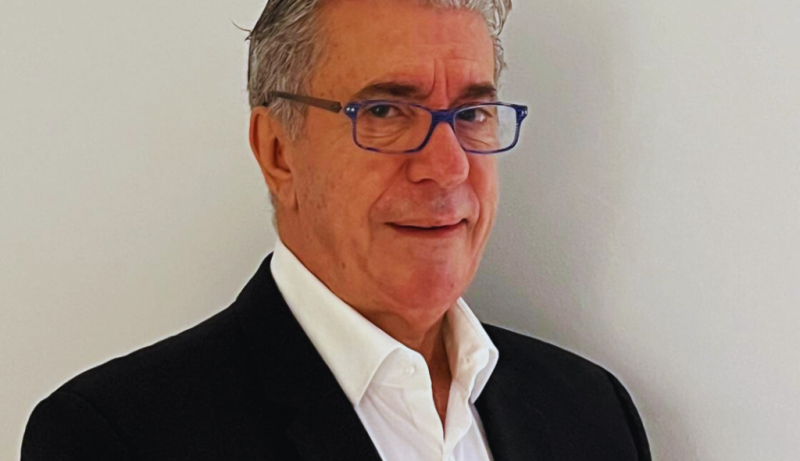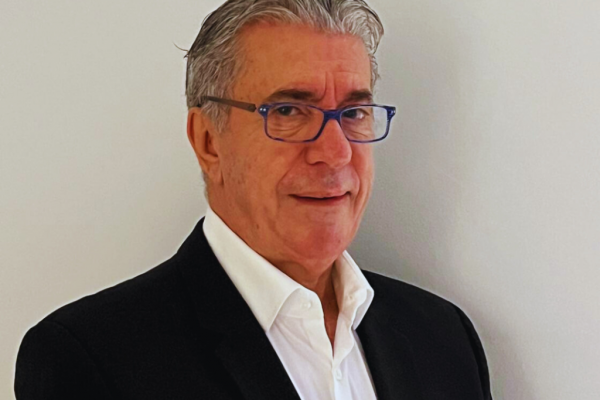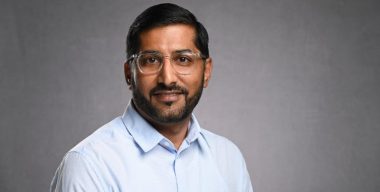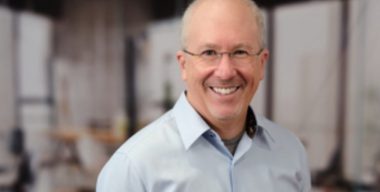“Don’t be shy to try new things, believe that you can do it!” Nelson de Franco, Principal Consultant at NFJ Consulting

-
Nelson de Franco has held leadership roles at Novartis, Ciba-Geigy, and AstraZeneca, launching ten oncology medicines in Latin America. Nowadays leads NFJ Consulting, specializing in solving critical challenges in the medical, pharmaceutical, and biotech industries. With experience across four continents, he excels in regulatory affairs, intellectual property, tech transfer, and business operations, with a focus on cultural differences.
Nominated by Gabriel Galván.
What is the best advice someone has ever given you?
Be always aware of your senses. In essence, “awareness of the senses” helps individuals develop the mental and emotional skills necessary for navigating the complexities of the modern workplace and achieving long-term career success.
What advice would you give us?
There’s one piece of advice that has always guided me, which I believe can be valuable for others too: Don’t be shy to try new things, believe that you can do it! Often, we hold ourselves back from pursuing new opportunities or experiences because we’re afraid of failure or the unknown. But the truth is, we’ll never know what we’re capable of unless we step outside our comfort zones and give it a shot.
Remember, every expert was once a beginner. So, embrace the challenges, learn from your mistakes, and keep pushing forward. With the right mindset and a little bit of courage, you might surprise yourself with what you can achieve.
An essential quality to lead…
An essential quality to lead is the ability to balance future-forward thinking and visionary goals with practical, grounded action. This involves strategic planning and execution, while never losing sight of the human element. Effective leaders understand the complexities of human nature and the realities of the world, approaching challenges and opportunities with humility and empathy. This balanced approach enables leaders to inspire and guide their teams toward success, fostering an environment of innovation, growth, and resilience.
What book, podcast, YouTube channel or any other type of content do you recommend us…
I am reading “The Venture Mindset”. It sheds light on a fascinating contrast in how decisions are made in established corporations versus fledgling startups fueled by venture capital. While both entities seek growth and success, their approaches to risk, resource allocation, and overall strategic thinking differ significantly. It is about the contrast between being risk-averse and to being agile and embracing risk. By understanding and appreciating these differences, individuals and organizations can navigate the complexities of today’s business landscape more effectively.
What historical figure would you like to have on your team?
I admire Benjamin Franklin for his multifluency, his ability to navigate various disciplines and communicate in multiple languages. This versatility is especially valuable in today’s era of rapid AI transformation.
Have you always been clear about your professional objective?
No, I have always had to deal with a lack of clarity around professional goals. The traditional notion of a lineal career path, with a clear trajectory from point A to B, is increasingly outdated. The world is changing at an unprecedented pace, and with it, the demands and opportunities in the job market are constantly shifting. In today’s world, adaptability is key. The ability to pivot, to acquire new knowledge, and to embrace change is more valuable than ever before. It’s not just about responding to external shifts in the environment, but also about being open to internal changes in your own interests and aspirations.
While a clear, long-term professional goal may remain elusive, it’s helpful to identify some guiding principles or values that can serve as your “North Star.” These might include a desire to make a positive impact, a passion for learning and growth, or a commitment to a particular field or cause. By staying true to these core values, you can navigate the twists and turns of your career with greater confidence and purpose, even when the destination is not yet fully in sight.
What is the bravest decision you have made in our life?
Without a doubt, it was our first international relocation with my wife. We left behind a comfortable and familiar environment to venture into a country with a different language and culture. We had to learn to navigate a new way of life, which ultimately taught us that stepping outside our comfort zone can lead to significant career and personal growth and development. Ever since that initial move, we’ve made several more relocations, always strengthening our partnership along the way.
What is the most curious app you have on your mobile?
I make an effort to use my cell phone as efficiently as possible and avoid apps that distract me. I don’t want to be addicted to my phone and prefer to use it to help me instead of distracting me. Perhaps the most relevant app for me is my address book.
What do people assume about you, and that isn’t true?
People often make the mistake of assuming that my extensive professional experience means I have nothing left to learn. However, this couldn’t be further from the truth. I’m constantly reinventing myself and seeking out new knowledge and skills.
What do you think will be the next revolution in your sector/industry?
The next pharmaceutical revolution is upon us, fueled by technological advancements. Molecular biology will unlock the secrets of disease pathways, empowering us to create targeted therapies. AI will accelerate drug discovery, predict patient responses, and personalize treatment plans. New delivery systems will enhance bioavailability and target specific tissues, improving efficacy and minimizing side effects.
In this new era, we will witness breakthroughs in previously intractable diseases like Alzheimer’s, along with cures for different forms of cancer. The landscape of available drugs will shift dramatically, with small molecules accounting for less than half of all treatments. Biologics, cell and gene therapies, and other innovative modalities will take center stage. AI-powered wearables will revolutionize patient care, enabling real-time monitoring, early detection, and proactive intervention. The patient-clinician relationship will evolve, with individuals playing a more active role in managing their health.
The greatest challenge will be ensuring equitable access to these life-changing innovations. Addressing the high cost of medical care and making treatments affordable for all will be paramount. But amidst these challenges lies immense hope. The next decade promises a paradigm shift in healthcare, where technology and human ingenuity converge to create a healthier future for all.
What do you admire and do not tolerate in a person?
The ability to admit mistakes with sincerity and humility is truly an admirable trait. It reflects not only self-awareness but also a willingness to learn and grow. In contrast, refusing to acknowledge errors can stifle progress and hinder innovation. By embracing mistakes as opportunities for learning, we create an environment where creativity and experimentation can flourish. In this environment, people feel safe to take risks, knowing that even if they stumble, their efforts will be valued, and their mistakes will be seen as steppingstones toward progress.
On the other hand, when individuals or organizations refuse to accept their mistakes, they create a culture of fear and stagnation. People become hesitant to try new things, afraid of being punished for any missteps. This stifles innovation and limits the potential for growth and development. Therefore, it’s crucial to cultivate an environment where sincerity and humility are valued, and mistakes are seen as a natural part of the learning process. By doing so, we can foster a culture of innovation and continuous improvement, where individuals and organizations can reach their full potential.
Which top managers would you like to nominate?
Alexandre Gibim, President at Pfizer Brazil.
Nelson Mussolini, President at Sindicato da Indústria Farmacêutica do Estado de São Paulo.
Norton Oliveira, SVP, Head of Partner & Emerging Markets at Alnylam Pharmaceuticals.
“Don’t be shy to try new things, believe that you can do it!” Nelson de Franco, Principal Consultant at NFJ Consulting

-
Nelson de Franco has held leadership roles at Novartis, Ciba-Geigy, and AstraZeneca, launching ten oncology medicines in Latin America. Nowadays leads NFJ Consulting, specializing in solving critical challenges in the medical, pharmaceutical, and biotech industries. With experience across four continents, he excels in regulatory affairs, intellectual property, tech transfer, and business operations, with a focus on cultural differences.
Nominated by Gabriel Galván.
What is the best advice someone has ever given you?
Be always aware of your senses. In essence, “awareness of the senses” helps individuals develop the mental and emotional skills necessary for navigating the complexities of the modern workplace and achieving long-term career success.
What advice would you give us?
There’s one piece of advice that has always guided me, which I believe can be valuable for others too: Don’t be shy to try new things, believe that you can do it! Often, we hold ourselves back from pursuing new opportunities or experiences because we’re afraid of failure or the unknown. But the truth is, we’ll never know what we’re capable of unless we step outside our comfort zones and give it a shot.
Remember, every expert was once a beginner. So, embrace the challenges, learn from your mistakes, and keep pushing forward. With the right mindset and a little bit of courage, you might surprise yourself with what you can achieve.
An essential quality to lead…
An essential quality to lead is the ability to balance future-forward thinking and visionary goals with practical, grounded action. This involves strategic planning and execution, while never losing sight of the human element. Effective leaders understand the complexities of human nature and the realities of the world, approaching challenges and opportunities with humility and empathy. This balanced approach enables leaders to inspire and guide their teams toward success, fostering an environment of innovation, growth, and resilience.
What book, podcast, YouTube channel or any other type of content do you recommend us…
I am reading “The Venture Mindset”. It sheds light on a fascinating contrast in how decisions are made in established corporations versus fledgling startups fueled by venture capital. While both entities seek growth and success, their approaches to risk, resource allocation, and overall strategic thinking differ significantly. It is about the contrast between being risk-averse and to being agile and embracing risk. By understanding and appreciating these differences, individuals and organizations can navigate the complexities of today’s business landscape more effectively.
What historical figure would you like to have on your team?
I admire Benjamin Franklin for his multifluency, his ability to navigate various disciplines and communicate in multiple languages. This versatility is especially valuable in today’s era of rapid AI transformation.
Have you always been clear about your professional objective?
No, I have always had to deal with a lack of clarity around professional goals. The traditional notion of a lineal career path, with a clear trajectory from point A to B, is increasingly outdated. The world is changing at an unprecedented pace, and with it, the demands and opportunities in the job market are constantly shifting. In today’s world, adaptability is key. The ability to pivot, to acquire new knowledge, and to embrace change is more valuable than ever before. It’s not just about responding to external shifts in the environment, but also about being open to internal changes in your own interests and aspirations.
While a clear, long-term professional goal may remain elusive, it’s helpful to identify some guiding principles or values that can serve as your “North Star.” These might include a desire to make a positive impact, a passion for learning and growth, or a commitment to a particular field or cause. By staying true to these core values, you can navigate the twists and turns of your career with greater confidence and purpose, even when the destination is not yet fully in sight.
What is the bravest decision you have made in our life?
Without a doubt, it was our first international relocation with my wife. We left behind a comfortable and familiar environment to venture into a country with a different language and culture. We had to learn to navigate a new way of life, which ultimately taught us that stepping outside our comfort zone can lead to significant career and personal growth and development. Ever since that initial move, we’ve made several more relocations, always strengthening our partnership along the way.
What is the most curious app you have on your mobile?
I make an effort to use my cell phone as efficiently as possible and avoid apps that distract me. I don’t want to be addicted to my phone and prefer to use it to help me instead of distracting me. Perhaps the most relevant app for me is my address book.
What do people assume about you, and that isn’t true?
People often make the mistake of assuming that my extensive professional experience means I have nothing left to learn. However, this couldn’t be further from the truth. I’m constantly reinventing myself and seeking out new knowledge and skills.
What do you think will be the next revolution in your sector/industry?
The next pharmaceutical revolution is upon us, fueled by technological advancements. Molecular biology will unlock the secrets of disease pathways, empowering us to create targeted therapies. AI will accelerate drug discovery, predict patient responses, and personalize treatment plans. New delivery systems will enhance bioavailability and target specific tissues, improving efficacy and minimizing side effects.
In this new era, we will witness breakthroughs in previously intractable diseases like Alzheimer’s, along with cures for different forms of cancer. The landscape of available drugs will shift dramatically, with small molecules accounting for less than half of all treatments. Biologics, cell and gene therapies, and other innovative modalities will take center stage. AI-powered wearables will revolutionize patient care, enabling real-time monitoring, early detection, and proactive intervention. The patient-clinician relationship will evolve, with individuals playing a more active role in managing their health.
The greatest challenge will be ensuring equitable access to these life-changing innovations. Addressing the high cost of medical care and making treatments affordable for all will be paramount. But amidst these challenges lies immense hope. The next decade promises a paradigm shift in healthcare, where technology and human ingenuity converge to create a healthier future for all.
What do you admire and do not tolerate in a person?
The ability to admit mistakes with sincerity and humility is truly an admirable trait. It reflects not only self-awareness but also a willingness to learn and grow. In contrast, refusing to acknowledge errors can stifle progress and hinder innovation. By embracing mistakes as opportunities for learning, we create an environment where creativity and experimentation can flourish. In this environment, people feel safe to take risks, knowing that even if they stumble, their efforts will be valued, and their mistakes will be seen as steppingstones toward progress.
On the other hand, when individuals or organizations refuse to accept their mistakes, they create a culture of fear and stagnation. People become hesitant to try new things, afraid of being punished for any missteps. This stifles innovation and limits the potential for growth and development. Therefore, it’s crucial to cultivate an environment where sincerity and humility are valued, and mistakes are seen as a natural part of the learning process. By doing so, we can foster a culture of innovation and continuous improvement, where individuals and organizations can reach their full potential.
Which top managers would you like to nominate?
Alexandre Gibim, President at Pfizer Brazil.
Nelson Mussolini, President at Sindicato da Indústria Farmacêutica do Estado de São Paulo.
Norton Oliveira, SVP, Head of Partner & Emerging Markets at Alnylam Pharmaceuticals.
Get to know it, more.



“Successful people know this trick, which is why they cultivate good habits and stick to them” Lorena Pulido, Customs Team Leader for Peru, Bolivia, Argentina & Uruguay at Siemens Energy